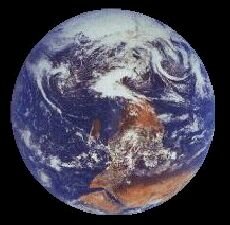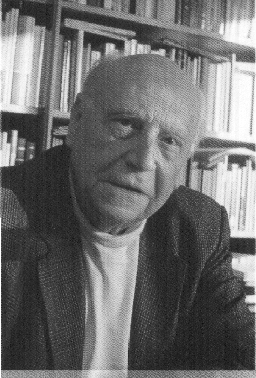 |
The Noosphere Network Contact us for comments and suggestions |
Homepage| Main Menu |
 |
The Noosphere Network Contact us for comments and suggestions |
Homepage| Main Menu |
 Max WILDIERS
Max WILDIERSLIFE
Born in Antwerp (1904), Flanders, Belgium. Joins the catholic religious order of Capucines, and graduated at the Gregoriana University in Rome with an essay on the theological work of dr. Albert Schweizer. Already in this period his intellectual interests included the relationship between science, philosophy and theology. As motto he choosed "Spiritus quiescit numquam", "The mind never rests". This reflects his scientific and social involvement.
He was appointed professor of theology at the priest school of his religious order in Izegem, Flanders. But his ideas and attitudes were considered as unorthodox and politically unsuitable, and he was removed to a most humble position, chaplain of a nuns' Institution for mentally handicaped children, somewhere in a forgotten rural village. In this period he met the Jesuit Pierre Teilhard de Chardin several times. The publication of Teilhard's works was forbidden by the Vatican but Wildiers regarded them as fascinating. Teilhard entrusted him, among others, with the publication of his work after his death. Wildiers supervised the translation and publication of the works of Teilhard in Europe, and some of Teilhards works were published sooner in Dutch than in their original French version or English translation.
Wildiers got international fame with these publications, and was appointed professor of Comparative Theology at the University of California at Berkeley. He was also lecturer in some other American and Canadian universities. Only at the end of his career he was appointed as professor at the Dutch speaking University of Louvain, Belgium.
His interests went to modern forms of spirituality and philosophy, from New Age to Liberation theology and the Gaian hypothesis, and he conceived an integrative cosmology. He used intensively the process theory of Whitehead.
After his retirement this gifted speaker remained strikingly active, and brought impressive conferences nearly until the end of his life, in 1996, at age 92. His last book ("The Delights of Mind") was published a few months earlier.
IDEAS
His basic concept is the evolutionary process of the mind, in culture as well as in religion. He made several additions to the theories of Teilhard, especially about the place of technology within the Noosphere. He described the evolution of christian culture, tracing it back to its jewish but also to its several non-christian sources, including Greek, Celtic and Renaissance world views, and its development in interaction with evolving culture.
He was convinced that freedom and tolerance created the most fertile atmosphere for cultural emancipation and development. He was a very creative thinker, and many cultural associations and even political parties invited him to supply them with ideas.
He can be considered as one of the greatest Flemish philosophers of the 20th century.
PUBLICATIONS
He wrote tens of books and articles, mainly in Dutch. His opus magnum, "The Theologian and his Universe: Theology and Cosmology from the Middle Ages to the Present", was tranlated into English (Seabury Press ISBN 0.816.4053.36).
He was strongly involved in the cultural emancipation of Flanders, that fertile cultural and artistic piece of Europe, too long oppressed by a French speaking minority. He founded an important cultural magazine, soon to be included in a major Flemish newspaper.
Homepage - Menu - Spirituality - Visionary Gallery - Feedback